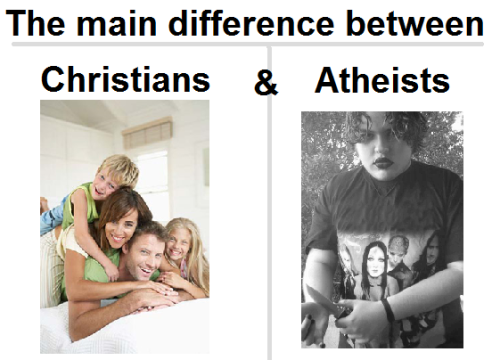Today we finish John and begin Acts, which is short for Acts of the Apostles. I've gotta say, I miss Jesus already. Once he died, it seems like the whole thing just got sort of cult-like and weird.
But let's not get ahead of ourselves! We've still got five chapters of John to discuss. Yesterday, we left our messianic pal in the middle of the Last Supper. The meal continues, with Jesus talking to the apostles about his upcoming resurrection: "Truly, I say to you, you will weep and lament, but the world will rejoice. You will be sorrowful, but your sorrow will turn to joy" (John 16:20). Well, that's good to know, because this whole thing has me a little bummed out.
In chapter 17 Jesus prays to God to guide the apostles after he dies, and then in chapter 18 we have the BETRAYAL. It plays out a little differently in John; Judas doesn't kiss Jesus to identify him, but instead just leads the authorities to where he is. Jesus approaches them and asks who they're looking for, and when they answer that they're looking for him, he goes with them willingly. Peter, meanwhile, doesn't take things so calmly and cuts off a soldier's ear. The soldier in question is identified as Malchus, and Jesus gets super pissed about it, asking, "Shall I not drink the cup that the Father has given me?" (John 18:11).
Get with the freakin' program, Peter!!
They bring Jesus to the high priests, Annas and Caiaphas, with whom he is super snarky. They ask what he has been teaching about and he's like, "I DUNNO, WHY DON'T YOU ASK ALL THE PEOPLE WHO WERE AT MY SERMONS?" The high priests, who don't appreciate his cheek, smack him around a little bit and then send him to Pilate.
Pilate has always been pretty DGAF (that means "don't give a fuck" for those of you who aren't quite as savvy as me) but in John it shines through especially. He really wants nothing to do with the affair and tells the priests to deal with it themselves, but they insist that he has to intervene because they don't have the authority to put anyone to death.
The Roman governor consents to question Jesus, and their conversation is pretty awesome. Pilate makes it clear that he doesn't particularly care about the ordeal, asking Jesus, "Am I a Jew? Your own nation and the chief priests have delivered you over to me. What have you done?" (John 18:25). Jesus responds that he has a kingdom, but it is "not of this world" and that he has come "to bear witness to the truth" (John 18:26-27). Pilate asks simply, "What is truth?" (John 18:28).
WHOA!! I DUNNO MAN! THIS IS PRETTY WILD!!
Overall Pilate decides that Jesus has done nothing wrong and tries to get him off the hook, but Jesus refuses to answer any questions. Pilate grows aggravated, asking Jesus if he understands that his life is in Pilate's hands. Showcasing his TREMENDOUS TACT (not really), Jesus says, "You would have no authority over me at all unless it had been given to you from above" (John 19:11). Ugh. Way to hammer that nail into the coffin, bud.
Jesus is forced to carry his own cross up to the hill where he is crucified -- I'm pretty sure that John is the only Gospel where he has to carry the cross himself. It's also the only one that mentions him wearing a crown of thorns. They nail him up and Pilate puts up a sign in multiple languages that says "Jesus of Nazareth, the King of the Jews." Some people bitch about it, saying that it should say SUPPOSED King of the Jews or something along those lines, but Pilate tells them to fuck off because "what I have written I have written" (John 19:22). In other words, "Bitch, PLEASE, you think I'm doing all that work again?"
Jesus continues to behave in a bizarre and borderline aggressive manner towards his mother up until the very end. When he sees her standing in the crowd, he yells out, "Woman, behold, your son!" (John 19:26). What kind of thing is that to say?! What does that mean? Is it like, "Look, mom, no hands!" or what?
Another note is that there is an unnamed apostle in here who is described as the "beloved disciple" or some variation of that. Some scholars think that it is John, since he is otherwise unmentioned in the book.
Jesus hangs out on the cross for awhile longer, then declares that he's thirsty. Someone passes him some wine on a stick, which I think he drinks, because he says "It is finished," and dies. After his death, some soldier stabs him, presumably just to be a jerk. Like in the synoptics, he is buried by Joseph, although this time Joseph is accompanied by a fellow named Nicodemus instead of Jesus's lady friends.
After the burial, Peter, John, and Mary Magdalene go to visit the tomb and freak out because they can't find Jesus. Mary starts to cry, at which point Jesus appears to her and asks why she is weeping. Assuming he is the GARDENER, she asks if he knows where Jesus's body is; in response he just says her name, and she realizes it's him and gets SUPER PUMPED!
Most of the apostles are equally psyched about the news, but Thomas proves to be a total douchebag about it, saying "Unless I see in his hands the mark of the nails, and place my finger into the mark of the nails, and place my hand into his side, I will never believe" (John 20:25). That's some faith! Luckily for Thomas, Jesus is obliging and lets him do all those things, but he adds, "Blessed are those who have not seen and yet have believed" (John 20:29).
In fairness, maybe we should give Thomas credit for being the only rationalist of the gang. But there's been some pretty spooky stuff happening! With all things considered, maybe he should have given the benefit of the doubt where Jesus was concerned.
In the last chapter, Jesus has a weird conversation with Peter where he asks him to "feed his sheep" which I think means to take care of the church? Who knows!
Next up is Acts. Written by Luke's author, it continues the story from the Gospels, focusing on Christianity's shift from a small Jewish movement to a worldwide movement that was based in Rome and involved Gentiles. It is apparently a pretty Hellenistic tome. Like Luke's Gospel, it is addressed to Theophilus, the "lover of God."
The tale opens with Jesus's ascension into heaven, after which the apostles select a new apostle to replace Judas, named Mattias. We also get a new account of Judas's death; unlike in Matthew, where he hung himself, Luke claims that he used his thirty pieces of silver to buy a field, then tripped and fell and "burst open in the middle and all his bowels gushed out" (Acts 1:18). Geez! That's kind of gruesome, huh?
In chapter 2, the apostles are all chilling together and suddenly they start speaking in tongues. I always thought speaking in tongues meant speaking gibberish, but apparently it actually means that they literally start speaking other languages that they don't know. Pretty cool! Most of the people who witness it are super impressed, but some scoff and say that "they are filled with new wine" (Acts 2:13). Don't you love when you get drunk and start speaking ancient Greek?
After this, Peter makes a speech and converts a bunch of people, who subsequently sell all their possessions and give their money to the church. I like how Jesus's request that people give their money to the POOR somehow got transformed into giving money to the church... Huh...
Apparently Jesus left his magical powers with his disciples, because in chapter 3 John and Peter heal a crippled man, to the amazement of the people. They are subsequently arrested for preaching about Jesus, but Peter -- who has become a lot more badass since Jesus's death -- tells the authorities that they won't stop doing good deeds or preaching about Jesus. They get released, after which all the followers join together to pray for boldness in the face of adversity. I wonder if some of them also prayed for brains or hearts, or to get back to Kansas. Little did they know, they've had the power in their ruby slippers all along.
In chapter 5 the cult vibes reach a new height, when a man named Ananias secretly keeps some of his money instead of giving it all to the church. When Peter and company find out, they chastise him, saying he has "not lied to men but to God" (Acts 5:4) and he FALLS DOWN DEAD! Then the exact same thing happens to his wife. Geez. Don't mess around with this stuff! And definitely don't take any Kool Aid that these guys give you.
The apostles get arrested again, and Peter reiterates his former stance: they're not going to stop talking about Jesus. At first, the priests want to kill the disciples, but a Pharisee named Gamaliel tells them not to. He references false messiahs who incited the people, naming Theudas and Judas the Galilean, both of whom were killed. "If this plan or this undertaking is of man," he tells them, "it will fail; but if it is of God, you will not be able to overthrow them. You might even be found opposing God!" (Acts 5:36-37). Yeah, but... the reason Theudas and Judas the Galilean failed was because the PRIESTS INTERVENED AND KILLED THEM!
YOUR ARGUMENT SUCKS, GAMALIEL!
But I guess without his shitty argument, our story would end here. And that wouldn't be very much fun!
Thank you, Gamaliel, for the eleven extra days of reading!








